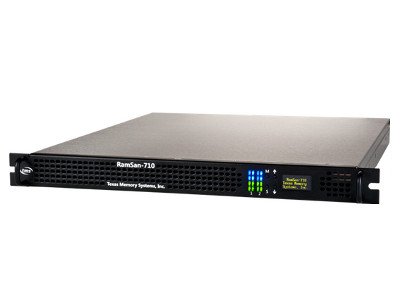IBM has closed the acquisition of Texas Memory Systems (TMS), a solid-state memory designer and vendor it first announced it would buy for an undisclosed sum in August.
All major IT vendors that play in the enterprise-storage space have been racing to expand Flash-memory capabilities as solid-state memory becomes an increasingly commonplace complement or replacement to disk.
ISI Group managing director Brian Marshall told us in September, that storage arrays that use Flash instead of disk address the performance bottlenecks of storage IO. Hard-disk drives reduce performance of the entire IT architecture because of the comparably slow IOPS of spinning disk.
Acquiring TMS is a way for IBM to instantly gain significant footprint in the Flash-memory space. The Texas firm has been around since the late 1970s and has established products and customers.
Brian Truskowski, general manager of IBM System Storage and Networking, said Flash technology was a “game changer”, and that IBM would deliver Flash-optimized products as a major part of its Smarter Storage strategy.
“The TMS solutions extend our broad portfolio of Flash-optimized storage arrays and flash optimization software, providing our clients unmatched value,” he said.
TMS’ flagship product is its RamSan Flash array, which IBM may use to put its Global Parallel File System (GPFS) on top of, Marshall said. GPFS is IBM’s enterprise file management platform for big-data analytics and data storage.
TMS has both rack-mount and PCIe Flash products.
In this market, IBM is going toe-to-toe with other major IT vendors, including ones that have historically focused on storage only. EMC, for example, bought Israeli “pre-revenue” Flash-memory startup XtremIO in May for its all-Flash enterprise-storage array.
This is a quickly growing market. According to an IDC estimate, about three exabytes of solid-state storage solutions will have been shipped by 2016.

